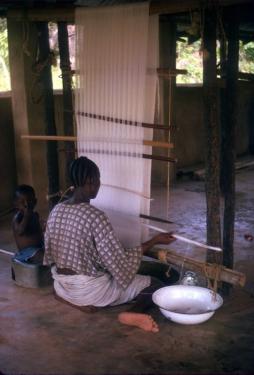abi jagun
Posted by CorinneRamey on Sep 03, 2009
We'd like to think that mobiles are a great economic equalizer, decreasing the gap between rich and poor.
But in a case study [PDF] published earlier this year about cloth weavers in Nigeria, authors Abi Jagun, Richard Heeks and Jason Whalley contest the conventional wisdom that more mobile phones result in a more equal society.
"There were few signs, then, of mobile telephony levelling the playing field; and more signs that it had been a technology of inequality," the authors wrote.
The study, which looked at the use of mobiles by the aso oke cloth weaving sector in Nigeria, found that mobiles did help those who had them. "By substituting for some journeys, plus in-person meetings, we can see that phone calls have reduced the time and financial cost of information-gathering, often by several hours and several U.S. dollars respectively per call (not to mention the opportunity cost gains)," wrote the authors.
Posted by KatrinVerclas on Oct 02, 2007
MobileActive.org series on mobiles in development continues. Here is guest writer Abi Jagun from the University of Manchster who deconstructs the hype on mobiles in civil society:
By the end of 2007 about half of the world’s population will be using mobile phones; and it is likely that this proportion will continue to increase as more people - predominantly in developing countries - get connected to mobile telecom networks.
The benefits of mobile phones continue to be widely publicised. In particular, they allow people to receive and communicate information interactively and/or simultaneously by voice and data -- beyond the physical limitations imposed by geography. But is the hype useful for a throughtful exploration of the potential of mobiles in development, or, in fact, a hindrance?

